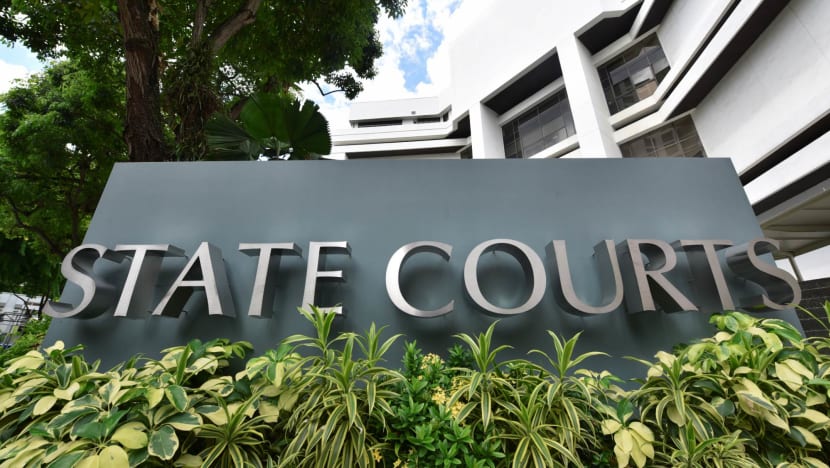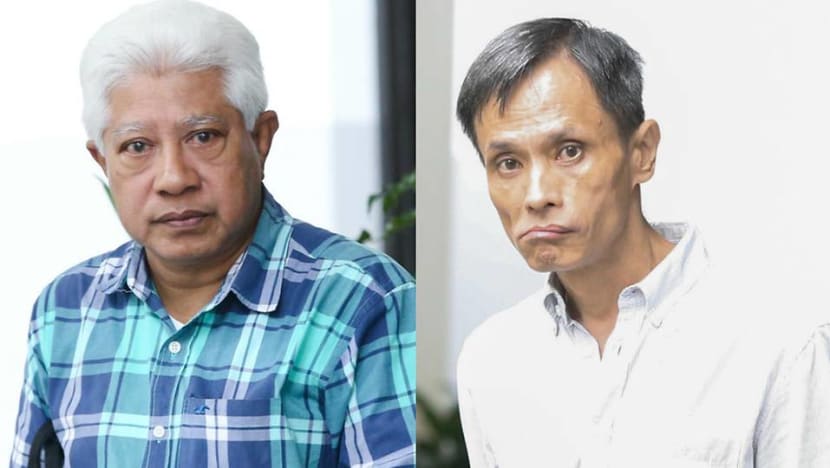Insurance agent on trial for bribing Indonesian embassy official over maid bonds

File photo of Singapore's State Courts (Photo: Jeremy Long)
SINGAPORE: An insurance agent stood trial on Monday (Nov 4) for giving about S$103,000 worth of bribes in a scheme involving an Indonesian embassy official in return for accreditation to sell "lucrative" bonds for maids.
Insurers who received accreditation to sell the newly introduced bonds for Indonesian foreign domestic workers stood to gain from high premiums, the prosecution said.
James Yeo Siew Liang, 48, represented AIG Asia Pacific Insurance and Liberty Insurance when he allegedly took up an agreement with a man linked to the embassy to share commissions in return for accreditation to underwrite the performance bonds.
The man, 64-year-old former freelance translator Abdul Aziz Mohamed Hanib, is also on trial and had allegedly been tasked with finding insurers willing to share their commissions in return for accreditation by Indonesian embassy labour attache, Agus Ramdhany Machjumi.
A third man, 56-year-old Benjamin Chow Tuck Keong, who introduced the first two men to each other, is also on trial.
The corruption trial involving up to S$124,619 began on Monday (Nov 4), with the prosecution saying the arrangement was "clearly corrupt".

NEW BOND INTRODUCED WAS "LUCRATIVE BUSINESS" FOR INSURERS: PROSECUTION
The exchange of money for favouring certain insurance companies allegedly occurred after the Indonesian embassy in Singapore made it compulsory from Feb 1, 2018 for all local employers hiring maids from Indonesia to buy a performance bond.
On top of the S$5,000 security bond required by Singapore's Manpower Ministry, employers pay about S$70 for a performance bond guarantee from either AIG or Liberty Insurance and they also have to sign a standard employment contract issued by the embassy.
The embassy would use this bond for the foreign domestic worker (FDW) if local employers breached conditions.
Employers would have pay up to the full sum of S$6,000 if they breach the conditions in the employment contract, such as not paying the maid's salary on time.
This the prosecution said was "clearly a lucrative business for general insurers if they received accreditation from the Indonesian embassy, as they could collect a S$70 premium for each performance bond issued in respect of an estimated 120,000 Indonesian FDWs in Singapore".
If a performance bond was called on, the insurers could seek reimbursement from the employers, and the insurers could pay their agents a "generous 45 per cent of the premiums earned for each performance bond", said Deputy Public Prosecutors Alan Loh, Jasmin Kaur and Eric Hu.
This was "a win-win for insurers and their agents", said the prosecution.
Agus, the Indonesian embassy labour attache, was in charge of giving out accreditation to insurers for the bonds. However, instead of doing so freely and openly to the 37 licensed general insurance companies in Singapore, he asked Aziz to look for those who would agree to give them a share of the premiums in exchange for accreditation.
Through intermediaries including Chow, Aziz found Yeo, who represented AIG Asia Pacific Insurance and Liberty Insurance.
Once Yeo agreed to share his commissions, both those firms were accredited by Agus to sell the performance bonds, said the prosecution in their opening statement.
AIG and Liberty sold more than 5,700 performance bonds between February and June 2018.
Yeo allegedly earned a total of S$124,619 from the sales in commissions. Acting on his own, without either firm's knowledge, Yeo gave about S$103,250 of this figure to four different people involved in the scheme between March and June last year.
This includes about S$21,000 paid to Aziz over 10 occasions, S$71,000 to Agus over eight occasions, as well as S$5,300 each to Yong and another intermediary. He kept about S$21,000 in commission for himself.
"This arrangement was clearly corrupt. Agus and Aziz issued no receipts to James for the money they received," said the prosecutors.
They added that payments were entirely in cash stuffed in "vomit bags" and envelopes, with no evidence that the embassy knew or approved of Agus receiving the share of commissions.
TOKIO MARINE INSURANCE AGENTS REJECTED BRIBE ARRANGEMENT
Aziz and Agus also asked insurance agents linked to Tokio Marine Insurance Singapore for a share of premiums in return to accreditation, but were rejected, with Tokio Marine receiving no accreditation from Agus.
The prosecution will be relying on confessions recorded by the Corrupt Practices Investigation Bureau (CPIB) to prove the charges against Yeo and Aziz.
They will make use of Chow's CPIB statements and Whatsapp messages to prove that he had intentionally aided Aziz in seeking bribes for Agus.
The defence will argue that the payments Yeo made to Aziz and Agus were legitimate Corporate Social Responsibility contributions for welfare activities, and that the embassy approved the payments.
Aziz is represented by Wong Thai Yong and Andre Darius Jumabhoy from Peter Low & Choo, while Yeo is defended by lawyer Chia Boon Teck and Chow is represented by Favian Kang, also from Peter Low & Choo.
CPIB had said in a statement in November last year when the men were charged that the Indonesian embassy was not complicit in the corruption offences.
It also said that there was no evidence to suggest that AIG or Liberty Insurance were complicit in the offences.
The court heard that Agus was not called up for investigations as he has diplomatic immunity.
The trial continues.
The penalties for taking or giving a bribe are a maximum five-year jail term, a fine of up to S$100,000, or both.














